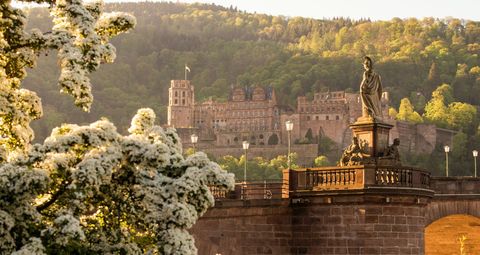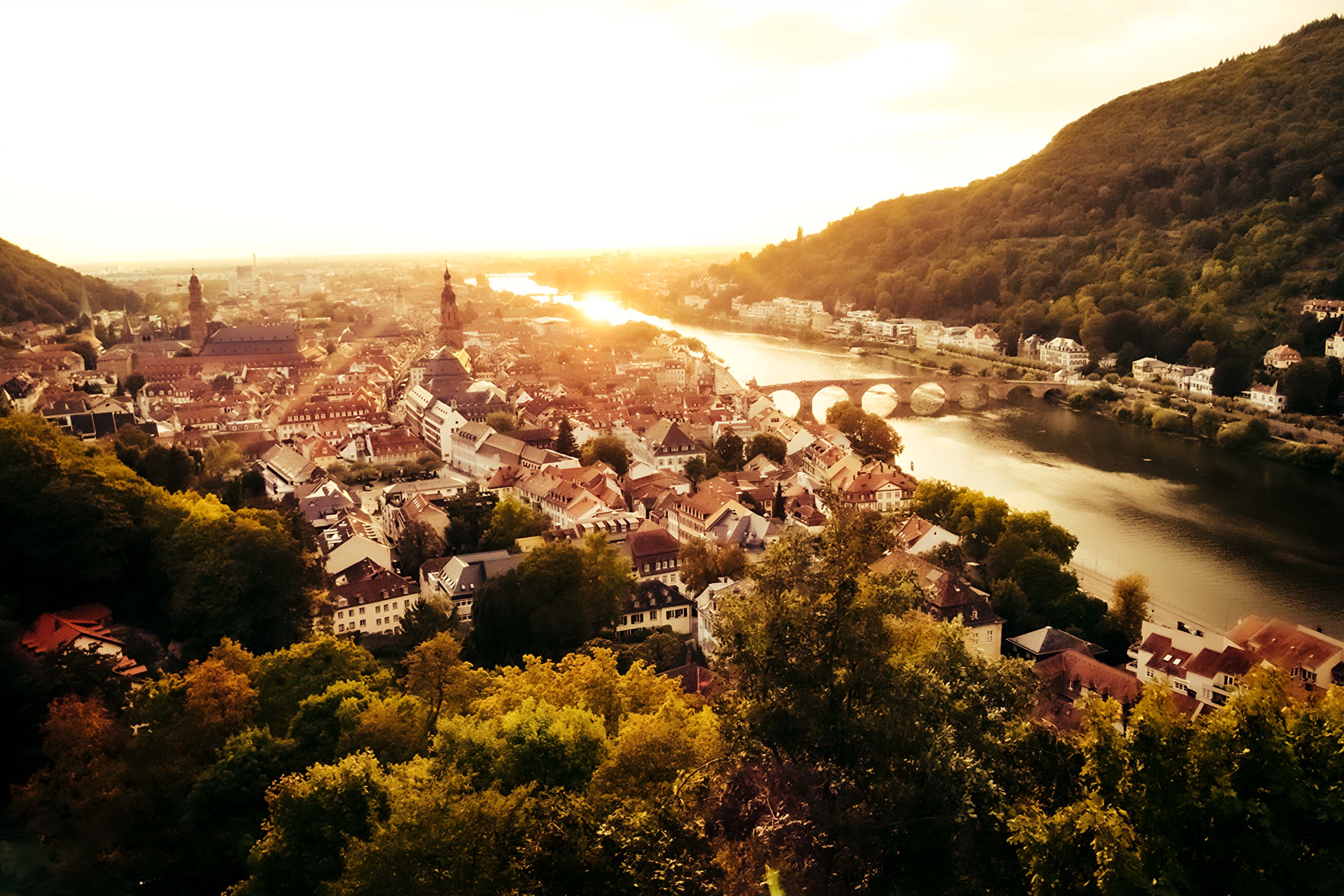Cultural Programme
for 73rd IFFMH
- 13 November 2024 // Kunsthalle Mannheim
Guided tour: Wed. November 13 at 11:00 am
Duration: 1 hour | Language: English
https://www.kuma.art/
The Kunsthalle Mannheim, opened as a museum in 1909, is one of the first civic collections of modern art in the world. Key epochal works of painting from Édouard Manet to Francis Bacon as well as an outstanding collection of sculpture from modernism to contemporary art characterize the museum's profile. In addition to maintaining the collection, the development of top-class exhibitions and provenance research form the focus of the Kunsthalle's academic work. The Kunsthalle Mannheim opens up both analog and digital museum worlds. Whether the innovative project “From Work to Display”, the museum app, Graphiktisch or Collection Wall - the comprehensive digital offerings invite visitors to become active themselves and rediscover the Kunsthalle.
The Kunsthalle is a place of education and entertainment for visitors - even at weekends, on public holidays and during vacations. Visitors can also look forward to the museum store, gastronomy, free admission to the atrium and, last but not least, a spectacular view of Mannheim's most beautiful square.
There are several interesting exhibitions for visitors to explore: The “Hart & Direkt” exhibition is dedicated to drawings and graphics from the New Objectivity period. The exhibition is part of the anniversary of New Objectivity and the event series “The 1920s in Mannheim.” “From Work to Display” deals with the question of how art can be conveyed in its full quality in the digital age. To this end, 22 works of art have been redesigned and translated into digital form in various ways. The multimedia work by artist Hito Steyerl entitled “Hell Yeah We Fuck Die” deals with political, social and ecological crises in a mixture of visual art and filmic practice. Tino Zimmermann deals with political and social issues.
There are several interesting exhibitions for visitors to explore: The “Hart & Direkt” exhibition is dedicated to drawings and graphics from the New Objectivity period. The exhibition is part of the anniversary of New Objectivity and the event series “The 1920s in Mannheim.” “From Work to Display” deals with the question of how art can be conveyed in its full quality in the digital age. To this end, 22 works of art have been redesigned and translated into digital form in various ways. The multimedia work by artist Hito Steyerl entitled “Hell Yeah We Fuck Die” deals with political, social and ecological crises in a mixture of visual art and filmic practice. Tino Zimmermann deals with political and social issues.
The exhibition consists of his photographs from the work “Developments” and a spatial installation that takes a closer look at the state of schizophrenia. The “Focus Collection” shows objects of kinetic art, works by the artist Anselm Kiefer and 20th and 21st century works that deal with the human body as fragmentation. - 15.11.24 // Wilhelm-Hack-Museum // Ludwigshafen
Guided tour: November 15 at 11:15 a.m.
Duration: 1 hour | Language: English
https://www.wilhelmhack.museum/de/
The Wilhelm Hack Museum houses a diverse collection of medieval, modern and contemporary art with around 10,000 paintings, sculptures, drawings, prints, multiples, artists' books and records.
A central pillar is the donation made by the Cologne collector Wilhelm Hack in 1973. His collection includes parts of the prehistoric burial find at Gondorf on the Moselle, medieval works and a first-class selection of 20th century works of art. With paintings by Kazimir Malevich, Lyubov Popova, Robert Delaunay, August Macke, Piet Mondrian and Bart van der Leck, the latter in particular traces the development of geometric-abstract art.
These works greatly enrich the municipal collection, which was begun in the late 19th century. On the one hand, the focus is on works by Palatine and Bavarian artists, including works by Albert Haueisen and Max Slevogt. On the other hand, paintings and works on paper from the Expressionist period were increasingly collected from the 1950s onwards. These include key works by Ernst Ludwig Kirchner, Max Pechstein, Erich Heckel and Max Beckmann. After the museum building was opened in 1979, the city's collecting activities took a new direction: the focus was placed on geometric abstraction of the post-war period. In the 1980s and 1990s in particular, the area of Concrete Art was developed with works by Max Bill, Verena Loewensberg, François Morellet and Vera Molnar.
Since 2009, the collection rooms have been refurnished every year - always with a changing thematic focus in order to open up new perspectives on the works of art. Within the collection presentations, the cabinet pieces form their own exhibition series, in which works on paper in particular are presented.
Since 2009, the collection rooms have been refurnished every year - always with a changing thematic focus in order to open up new perspectives on the works of art. Within the collection presentations, the cabinet pieces form their own exhibition series, in which works on paper in particular are presented.
Current exhibition: “We will go as far as the sun. Pioneers of geometric abstraction”. Exhibition on the importance of female artists for the development of geometric abstraction in the 20th century. Also: In “Poetry of the Elements” you will find 20th century works dedicated to the play of the elements. These include exhibits by Joseph Beuys, Robert Delaunay, Max Ernst, Roy Lichtenstein and Jackson Pollock. “Cabinet Pieces: Landscapes of Longing” shows landscape paintings from the 20th century that reflect the emotions of the artists. Sketches, woodcuts, lithographs and oil paintings can be admired here. - Heidelberg Walking Tour – Old Town

Discover the picturesque old town of Heidelberg on a walking tour! The tour begins with the famous Philosophenweg, which can be reached via the Schlangenweg. The Philosophenweg is located on the slope of the Heiligenberg and offers a unique view of the Old Town and the Neckar Valley. The path then leads over the historic Old Bridge, one of Heidelberg's landmarks. The mountain railroad takes you up to Heidelberg Castle and its beautiful gardens. Here, too, you can enjoy a breathtaking view of Heidelberg's Old Town. Finally, you can explore the narrow and winding alleyways of the Old Town and its baroque buildings on a leisurely stroll.
Google Maps Route of the Walking Tour: https://maps.app.goo.gl/SRRyuxdykxoLq91C7
1. Shuttle Meeting Point
2. Old Bridge
3. Snake path to the Philosophenweg
4. Philosophenweg | Path with view over the town
5. Cable car to the castle & Königsstuhl
6. Heidelberg Castle
We have compiled an information brochure for all industry porfessionals. The brochure is bilingual in German and English. Download it here!

